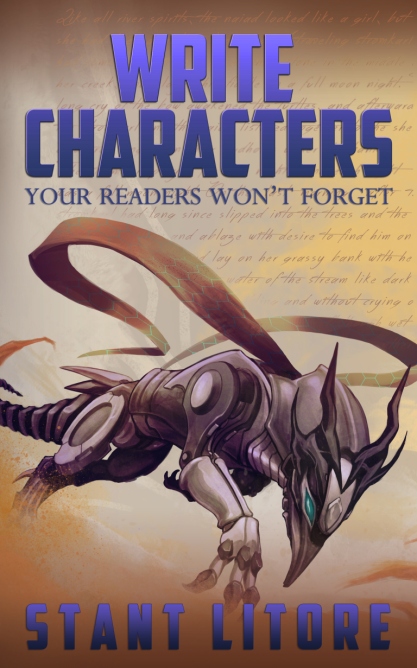Most writers are familiar with the usual promotional channels, including advertising on websites, blog exchanges, social media marketing, and having your own author website. One that slides under their radar is getting interviewed on talk radio, which includes on-air, on-web, or with podcasting. Radio show hosts will always need new and interesting material to keep their listeners tuned in. If you’re comfortable having a conversation with a radio personality, you can get your name in front of a new audience.
You might be surprised at the number of available radio stations in your area. In Denver, Colorado, there are 50 FM radio stations and even more AM stations. If you’re wondering why bother with AM or you are surprised it still exists, note that it can sometimes be heard thousands of miles away by people who purchase more books on average, according to several studies. Old AM Radio can and should be on your radar when it’s time to find an interview spot. Online, check places like Wikipedia and RadioMap.US to see what’s out there in your area. RadioMap has some links to station websites and even a way to listen to what’s on the air right now.
Traditional over the airwaves radio shows are obviously still thriving, and some of them fill up their weekend programming with a few talk shows. The subjects can range from bringing in musicians to discuss their work to shows dedicated to literature. As an author, these are the shows you should focus on unless you’re already a well-known musician. Local radio stations are your best bet, since they’re more interested in promoting the neighborhood connection. Additionally, there are thousands of licensed low-power radio stations that provide limited coverage.
Sometimes you can combine two different subjects to make your appearance more appealing. I was asked to appear on a Denver radio show that focused on veterans. The host invited me to have an hour-long conversation about my service in the US Navy, which led into my ebook “Tales from the Fleet”, which was filled with essays, stories, and observations about my time in the military. The time flew by, and it gave me a good bump in sales. I already had all of the individual stories and essays written — I had previously published several of them over a ten year period. I combined all of them into an ebook specifically because of my radio appearance, and the book sold well for several months. Not much additional effort to take advantage of the marketing opportunity.
If you’re more of a Techie and prefer podcasting and Internet-based radio stations, use Google and ask around in your preferred genre. The science fiction crowd tunes in to Patrick Hester’s SFF Signal every week. I kept running into Patrick at most of the Denver conventions. We became friends, and eventually he ran out of top-tier writing talent and asked me to appear on his show. I was ecstatic, and we did an interview over Skype.
Another now-retired Internet radio host asked me to be on one of his shows, The Funky Werepig. This one focused on dark fiction and lots of irreverent humor. The hour-long discussion ranged from writing horror to how to market underwear-scented candles. The Werepig, who is secretly author and comedian Greg Hall in disguise, had a small yet very dedicated audience. I spent a lot of time muting the microphone to stop laughing out loud over the live show.
My two most recent radio/podcast interviews were the one with Patrick at SFF Signal and “What Are You Afraid Of?“, a Ghost Host show with Fox and Phil. For the latter, we discussed three true ghost vignettes I had sent in two years prior.
If you decide to give talk radio a shot, here are a few tips:
- Familiarize yourself with the current news and publishing topics. Stay up to date on current events. Being knowledgeable and worldly will build your credibility.
- Tie-in a local angle if at all possible. Whether you are talking to a radio show out of your town, Detroit, or London, be sure to tie the local area in to what your conversation is about, especially if one of your novels takes place in or near the city, state, or country where your listening audience resides. By localizing the message, you become someone that understands the audience and, in turn, will keep them tuned in.
- Be yourself. Don’t put up a fake persona unless it’s something that is well practiced and established. If an audience perceives you to be fake, what you say won’t matter.
- Be careful about political, religious, and sexual topics. No matter which way you choose, you might alienate half of your listening audience. Controversial issues can cause you some grief later, so be aware of that going in to the interview. Unless you’re talking pizza, where you can admit that Brooklyn pizza dominates all others.
- Pace yourself so you keep up with the show host. Adjust and match their rhythm. The conversation will naturally keep their audience interested in your message.
- Use an index card with your key talking points and a pen. Cross the points off when they’re covered. Try to remember your main focus is to introduce yourself to the audience and to talk about your books. Don’t stray too far off-topic. Additionally, make sure you let people know how to reach you (social media, blog location, conventions you’ll be attending, etc.)
- Make sure you give the host your media kit, which should include a headshot for their website, a short bio, and a long bio. Note how the audience can get in touch with you after the show airs. Consider having either a contest or a special discount code for members of the audience. A 10% coupon might just convert the listeners to dedicated readers.
- If you’re in a studio, turn your mobile phone off or put it in airplane mode. If you’re going to be interviewed over the phone, a stable landline or Skype tends to be better than cells. Cell phones are particularly unreliable for on-air interviews, and you may get cut off in the middle of your appearance. If that happens, the talk radio hosts have to fill the time slot without any notice. Just understand that going in, and let the host know what your primary and backup communication methods are. Decide who will call back so you don’t play phone tag for five minutes.
- Limit numbers and statistics during your interview. If you have a particular statistic that you think applies very strongly to your message, use it to make your point and move on. If you throw too many numbers at the audience, their eyes will glaze over and they will lose interest and tune out. Harken back to math classes, when everyone around you was doodling instead of learning how to do word problems.
- Don’t bullshyte when you don’t know an answer! A radio or podcast appearance is not a test of your intelligence, and you’re not an expert on life, the universe, and everything. If you aren’t familiar with an issue the host brings up or don’t know the answer to a question, don’t be afraid to admit it. You’ll come across as honest and credible.
- Try to give your interviews an intimate feel. Remember that radio is a one-on-one communication medium, and it’s just you talking to another person. Talk to the host in a conversational manner, and if there are callers, do the same with them. Imagine you’re all sitting around a table in your kitchen sharing a cup of tea or a spaghetti dinner. This will help keep the audience interested and they’ll be more likely to relate to you.
- Bring a couple of copies of your latest book to give to the host. One is theirs, so sign it and hand them a personal copy. The one or two extras should be signed so the station can give them away to their listeners. No shipping needed — the listeners can stop by and pick it up.
- Follow up your interview with a thank-you note. If the interview went well, let them know you’d love to come back anytime in the future.
- Make sure you thank the press person, the office personnel, the studio engineer, and everyone who works there. If the whole staff likes you, they’ll remember your name when your next book comes out.
Your goal for every interview is to enlighten the listening audience about who you are and to interest them in your book to the point where they’d like to purchase a copy. Be fun and entertaining, and through that you’ll build an audience.





